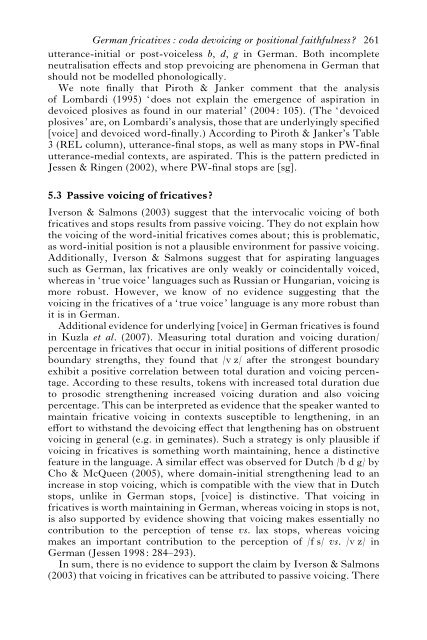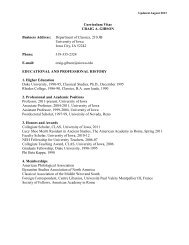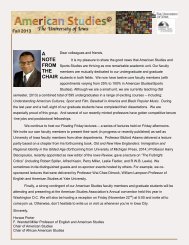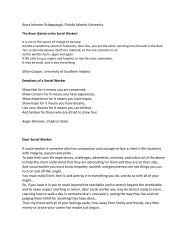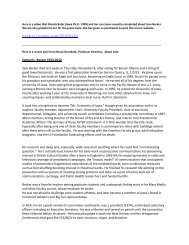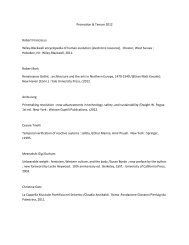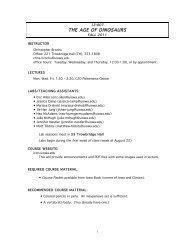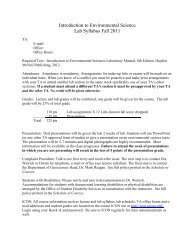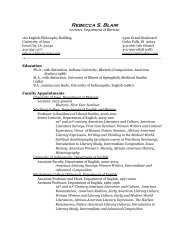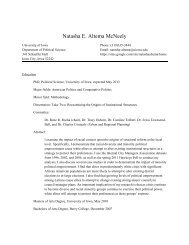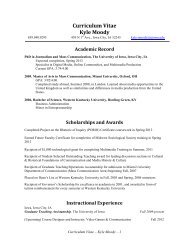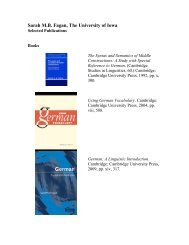German fricatives: coda devoicing or positional faithfulness?
German fricatives: coda devoicing or positional faithfulness?
German fricatives: coda devoicing or positional faithfulness?
You also want an ePaper? Increase the reach of your titles
YUMPU automatically turns print PDFs into web optimized ePapers that Google loves.
<strong>German</strong> <strong>fricatives</strong>: <strong>coda</strong> <strong>devoicing</strong> <strong>or</strong> <strong>positional</strong> <strong>faithfulness</strong>? 261<br />
utterance-initial <strong>or</strong> post-voiceless b, d, g in <strong>German</strong>. Both incomplete<br />
neutralisation effects and stop prevoicing are phenomena in <strong>German</strong> that<br />
should not be modelled phonologically.<br />
We note finally that Piroth & Janker comment that the analysis<br />
of Lombardi (1995) ‘does not explain the emergence of aspiration in<br />
devoiced plosives as found in our material’ (2004: 105). (The ‘devoiced<br />
plosives’ are, on Lombardi’s analysis, those that are underlyingly specified<br />
[voice] and devoiced w<strong>or</strong>d-finally.) Acc<strong>or</strong>ding to Piroth & Janker’s Table<br />
3 (REL column), utterance-final stops, as well as many stops in PW-final<br />
utterance-medial contexts, are aspirated. This is the pattern predicted in<br />
Jessen & Ringen (2002), where PW-final stops are [sg].<br />
5.3 Passive voicing of <strong>fricatives</strong>?<br />
Iverson & Salmons (2003) suggest that the intervocalic voicing of both<br />
<strong>fricatives</strong> and stops results from passive voicing. They do not explain how<br />
the voicing of the w<strong>or</strong>d-initial <strong>fricatives</strong> comes about; this is problematic,<br />
as w<strong>or</strong>d-initial position is not a plausible environment f<strong>or</strong> passive voicing.<br />
Additionally, Iverson & Salmons suggest that f<strong>or</strong> aspirating languages<br />
such as <strong>German</strong>, lax <strong>fricatives</strong> are only weakly <strong>or</strong> coincidentally voiced,<br />
whereas in ‘true voice’ languages such as Russian <strong>or</strong> Hungarian, voicing is<br />
m<strong>or</strong>e robust. However, we know of no evidence suggesting that the<br />
voicing in the <strong>fricatives</strong> of a ‘true voice’ language is any m<strong>or</strong>e robust than<br />
it is in <strong>German</strong>.<br />
Additional evidence f<strong>or</strong> underlying [voice] in <strong>German</strong> <strong>fricatives</strong> is found<br />
in Kuzla et al. (2007). Measuring total duration and voicing duration/<br />
percentage in <strong>fricatives</strong> that occur in initial positions of different prosodic<br />
boundary strengths, they found that /v z/ after the strongest boundary<br />
exhibit a positive c<strong>or</strong>relation between total duration and voicing percentage.<br />
Acc<strong>or</strong>ding to these results, tokens with increased total duration due<br />
to prosodic strengthening increased voicing duration and also voicing<br />
percentage. This can be interpreted as evidence that the speaker wanted to<br />
maintain fricative voicing in contexts susceptible to lengthening, in an<br />
eff<strong>or</strong>t to withstand the <strong>devoicing</strong> effect that lengthening has on obstruent<br />
voicing in general (e.g. in geminates). Such a strategy is only plausible if<br />
voicing in <strong>fricatives</strong> is something w<strong>or</strong>th maintaining, hence a distinctive<br />
feature in the language. A similar effect was observed f<strong>or</strong> Dutch /b d g/ by<br />
Cho & McQueen (2005), where domain-initial strengthening lead to an<br />
increase in stop voicing, which is compatible with the view that in Dutch<br />
stops, unlike in <strong>German</strong> stops, [voice] is distinctive. That voicing in<br />
<strong>fricatives</strong> is w<strong>or</strong>th maintaining in <strong>German</strong>, whereas voicing in stops is not,<br />
is also supp<strong>or</strong>ted by evidence showing that voicing makes essentially no<br />
contribution to the perception of tense vs. lax stops, whereas voicing<br />
makes an imp<strong>or</strong>tant contribution to the perception of /f s/ vs. /v z/ in<br />
<strong>German</strong> (Jessen 1998: 284–293).<br />
In sum, there is no evidence to supp<strong>or</strong>t the claim by Iverson & Salmons<br />
(2003) that voicing in <strong>fricatives</strong> can be attributed to passive voicing. There


